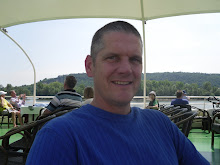Tuesday, September 20, 2011
Food and Faith | Books and Culture
Read this book review on eating and found it very interesting, if not a bit challenging.
Thursday, September 1, 2011
Who can stand before God?
Psalm 15 begins with a question that is perhaps the most fundamental question ever to be asked. This is how the New International Version translates it, “Lord, who may dwell in your sanctuary? Who may live on your holy hill?”
The question being asked seems to get to the heart of mankind’s relationship with his Creator. If one can imagine life in the Garden before the Fall, before man’s rebellion and ultimate estrangement from God, this question becomes meaningless, for this question asked in such a context would be entirely out of place. Imagine this question being asked to Adam and Eve prior to the temptation by the serpent, “Hey Adam, or Eve (a generous imagination will be required!) how can anyone live with God?
They might have responded with something like, “what in the world are you talking about?”
The first two humans, before the FALL, would have had no context for such a question. They had known nothing but a life lived in the very presence of God. For them, life apart from their loving Creator was unimaginable. Adam and Eve, being entirely naked, lived, played, worked, slept, ran, jumped, adventured,discovered and loved all before and in the presence of God. This was life for them. They were entirely innocent! No evil or ungodly thought had ever entered their minds. They knew nothing of fear. They knew nothing of judgment or wrath. Their life was lived in absolute innocent joy.
But King David, credited with writing Psalm 15, knows nothing of this innocent joy. He, like all humans born after the fall, lives and perceives life through a lens of personal, as well as, corporate sinfulness, rebellion and guilt. The question David asks in such a setting is both terrifying and thrilling. Terrifying because the question reminds the reader that he is sinful and therefore fully unfit to live in the presence of God. On the other hand, the question is thrilling because it hints that perhaps his condition can change.
In the remaining verses of this short Psalm David answers his own question. Again, using the NIV translation, a portion of the answer is as follows, “He whose walk is blameless...who does what is righteous, who speaks truth from his heart...has no slander on his tongue...does his neighbor no wrong...casts no slur on his fellowman..”
For all who would read David’s answer it must seem hopeless. Who can live in such a way without ever “slipping up” or without failing at some point or at every point? Of course the answer is no one! This is why the Psalm, any Psalm, must be read from the perspective of the cross. Only when one has clothed herself in the righteousness of Jesus Christ can she confidently make a claim to innocence. By grace and through faith, the Christian living in the power of the Holy Spirit is transformed into the kind of person that David describes in the Psalm. The Christian becomes the person who can live on the “Holy Hill” of God, without any threat of judgment or wrath, because the Christian has become like the ONE whom he has placed his faith in.
There is hope of transformation; hope to become, in Christ, everything that God always desired his Creatures to be. Creatures who reflect his nature, his glory. May His Word transform each of us as we place our trust and faith in HIM!
Pastor Gibbs
Subscribe to:
Comments (Atom)
